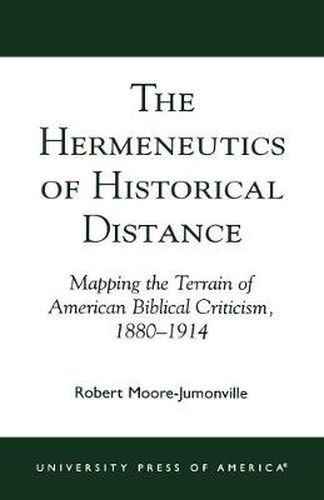Readings Newsletter
Become a Readings Member to make your shopping experience even easier.
Sign in or sign up for free!
You’re not far away from qualifying for FREE standard shipping within Australia
You’ve qualified for FREE standard shipping within Australia
The cart is loading…






Historians have tended to create a dualistic paradigm, which excludes a mediating biblical criticism in America. For polemical reasons, it has been easier for both conservatives and liberals to polarize moderates as the opposition or to ignore them altogether. Rather than the common modernist/fundamentalist paradigm, which is dualistic, a more accurate way to interpret the biblical criticism of late nineteenth century America is to construe a theological spectrum extending from right to left. The Hermeneutics of Historical Distance tells the story of late nineteenth century moderate American biblical criticism. Robert Moore-Jumonville’s study serves as a lens for examining the broader context and complexities of American biblical studies during the period and the result is a more subtly nuanced view of American biblical criticism.
$9.00 standard shipping within Australia
FREE standard shipping within Australia for orders over $100.00
Express & International shipping calculated at checkout
Historians have tended to create a dualistic paradigm, which excludes a mediating biblical criticism in America. For polemical reasons, it has been easier for both conservatives and liberals to polarize moderates as the opposition or to ignore them altogether. Rather than the common modernist/fundamentalist paradigm, which is dualistic, a more accurate way to interpret the biblical criticism of late nineteenth century America is to construe a theological spectrum extending from right to left. The Hermeneutics of Historical Distance tells the story of late nineteenth century moderate American biblical criticism. Robert Moore-Jumonville’s study serves as a lens for examining the broader context and complexities of American biblical studies during the period and the result is a more subtly nuanced view of American biblical criticism.